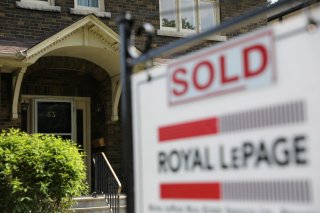How Rhode Island Became the Epicenter of the Coronavirus Housing Boom
The median sale price of a single-family home shot up to $349,000 in April 2021, an increase of 18% from April 2020.
Here's What You Need to Remember: This can have negative consequences over the long run. High competition for houses can lead to some prospective owners agreeing to pay more than they can easily afford. If an emergency strikes them later, such as an illness or a job loss, they often lose their houses – something that often happened during the 2007-2008 financial crisis.
During economic crises, such as the one surrounding the COVID-19 pandemic, it is unusual to see sales in non-essential goods booming. Yet this is precisely what is happening in the Rhode Island real estate market. According to the Rhode Island Association of Realtors, the median sale price of a single-family home shot up to $349,000 in April 2021, an increase of 18% from April 2020.
Even larger increases were recorded in multi-family homes, which the same survey recorded reached a high point of $355,000 in April 2021, an increase of roughly one-fourth since last year.
Why the boom? This question is difficult to answer. Initial hypotheses suggested that the pandemic played a key role. As remote working via Zoom or Microsoft Teams became more common during March and April 2020, many New Englanders sought to live in areas further away from their jobs to save money.
Another important reason for the increase in housing prices is the exceptionally high price of lumber, a commodity whose supply chains have been severely impacted by the COVID-19 pandemic. This has added onto the cost of building new homes and maintaining existing ones.
The current situation appears to be a seller’s market across the state, and prospective home buyers have been forced to provide increasing concessions – paying larger down payments or higher interest rates, for instance.
This can have negative consequences over the long run. High competition for houses can lead to some prospective owners agreeing to pay more than they can easily afford. If an emergency strikes them later, such as an illness or a job loss, they often lose their houses – something that often happened during the 2007-2008 financial crisis.
In spite of this, the market in Rhode Island shows no signs of slowing. In April, the number of deals closed increased 16% in one month – a situation which the RIAR notes alarmingly will, if present trends continue, lead to a drastic imbalance between supply and demand.
If you are thinking of buying a home, there are several steps you can take first. A helpful one is enrolling in a homebuyer’s course, which can often help you to plan financially and make important informed decisions.
Above all, it must be remembered that buying a home is one of the most significant decisions that one is likely to make in their lives. It stands to reason, therefore, that one should do one’s research first.
Trevor Filseth is a news reporter and writer for the National Interest. This article first appeared earlier this year.
Image: Reuters.

